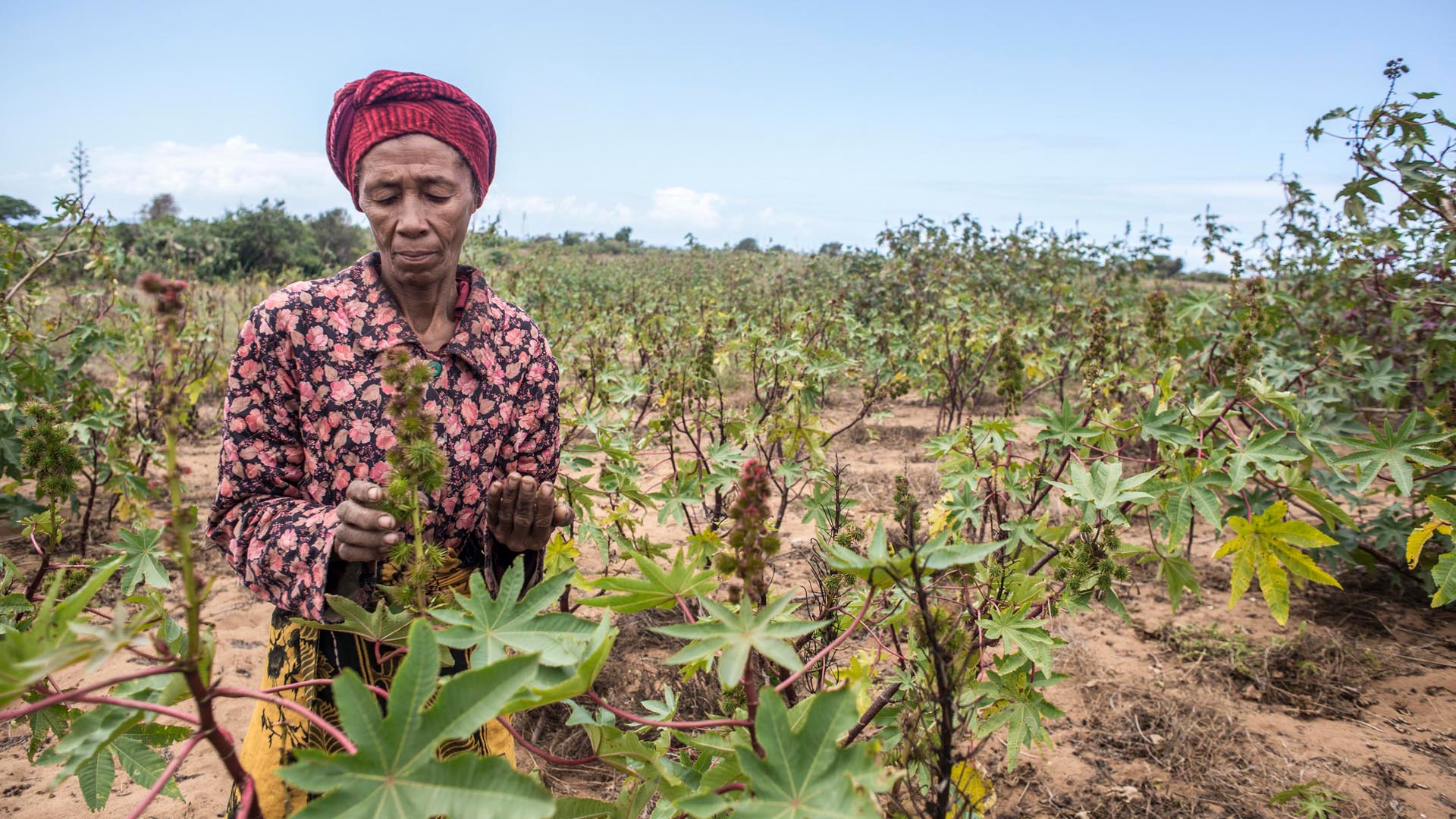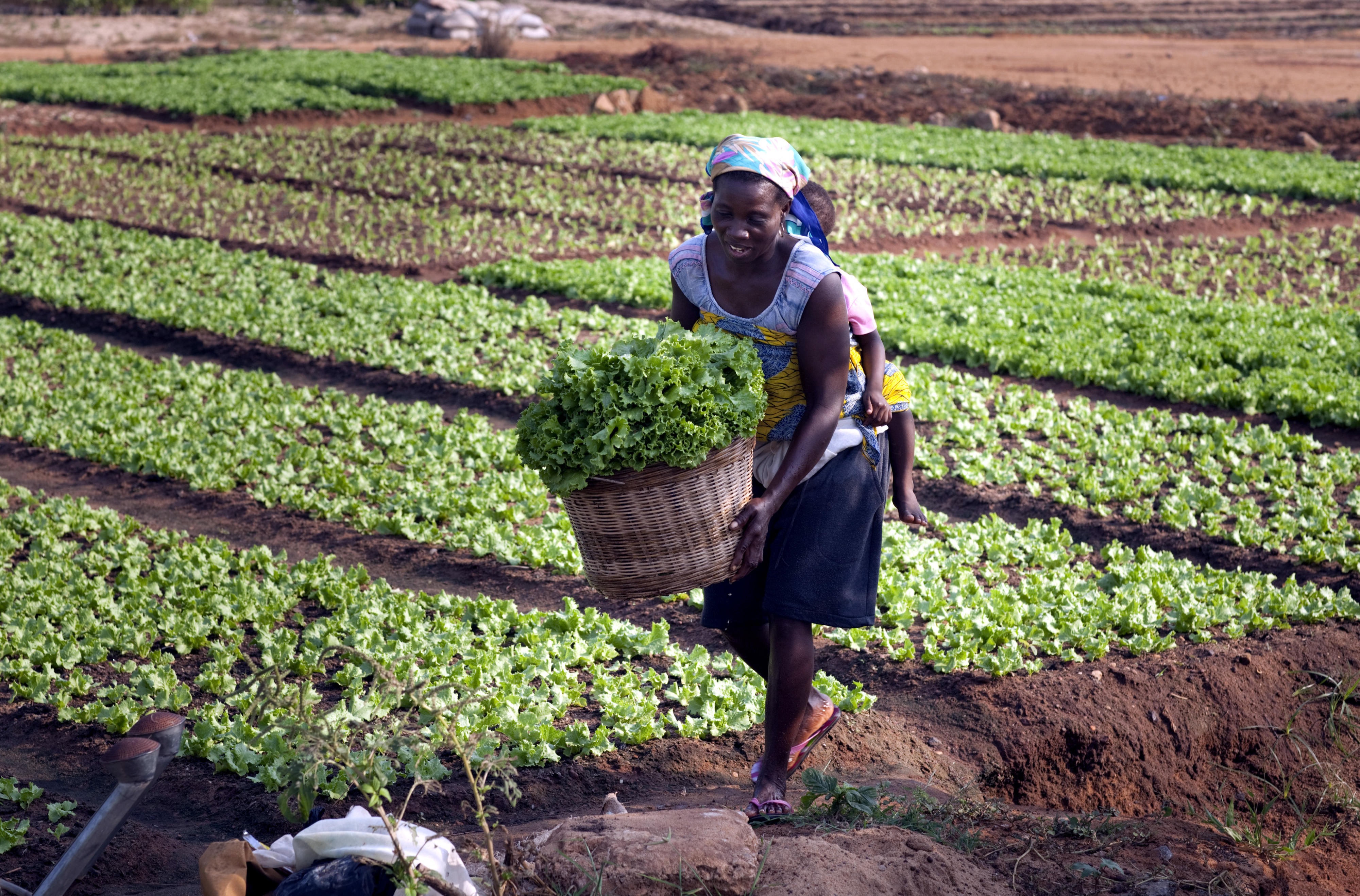Core area “Transformation of agricultural and food systems” Agricultural value chain development
“
Madame Filao inspects her castor oil plants.
Extreme weather events are on the rise. Cyclones and droughts regularly cause harvest loss and significant damage. The southern part of the country, which is particularly poor, is currently experiencing a humanitarian crisis that is significantly fuelled by climate change. Due to persistent drought, one and a half million people are experiencing hunger.
While agriculture employs about three quarters of the population, there is a lack of economically significant value chains in the sector. The vast majority of farmers are engaged in subsistence farming. Most farmers are smallholders. Fields are fragmented and often difficult to access. Farming, livestock and processing techniques are mostly traditional, and farmers and processing enterprises are usually not organised in associations. Adaptation to climate change is a huge challenge for local communities.
German activities
The GIZ project “Adaptation of agricultural value chains to climate change (External link)” is contributing to food security, especially in southern Madagascar. Support is provided in three regions to the production, processing and marketing of peanuts, millet, honey, ginger, fish, castor oil, goats and sheep, onions, coffee, cloves, pepper and vanilla. Farmers are given better access to market and weather information, climate-adapted seeds and modern production techniques. The introduction of climate risk insurance enables them to get protection against income loss caused by extreme weather events.
Together with national partners, the BMZ is working on the issuing of land certificates, an important basis for rural development. Secure land rights protect farmers and enable them to make longer-term investments.
The BMZ is also fostering food security in Madagascar through its Special Initiative “Transformation of Agricultural and Food Systems”, for example through efforts against soil erosion and for sustainable fisheries and aquaculture, and through numerous public-private partnerships, especially in the field of sustainable agriculture.
This has made it possible, among other things, to increase fish production from aquaculture by 512 per cent in the regions receiving support. Fish is a valuable source of protein, and aquaculture is an option in the country's many rice paddies.
As at: 12/01/2024

